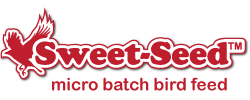10 Things Not to Feed Hummingbirds

Feeding hummingbirds can be a joyful addition to your yard, whether you already have an active bird feeding station or just want to offer sweet sips to these flying jewels. While nectar is a top choice for feeding hummingbirds, it isn’t the only food available. You do have to take care, however, to never offer hummingbirds any of these 10 foods that might, at first, seem like a good idea but in fact are harmful for hummingbirds
10 Foods You Should Never Feed Hummingbirds
Each of these foods might seem like a good addition to a hummingbird feeder, but in reality, they are not digestible to the birds, can introduce harmful fungus or bacteria, or could have other disastrous consequences for hungry hummers.
- Spoiled Nectar
Only fresh, clean nectar is suitable for hummingbirds. Any nectar that is exuding a foul odor or showing discoloration such as black specks, milky strings, or opaqueness has spoiled, and the fungus and growth in the nectar can be dangerous for hungry hummers. The feeder needs to be thoroughly cleaned and refilled before it should be offered to birds again. - Red Dye
While it is well known that hummingbirds are attracted to the color red, it is not necessary to add red food coloring or other dyes to nectar to entice hummingbirds. The red parts of feeders, or red flowers or accents nearby, are more than enough to catch the birds’ attention, and there is no need to add potentially dangerous dyes to their food. - Honey
Honey is a natural sugar, but it isn’t healthy for hummingbirds. When contaminated – which happens as soon as a bird’s bill takes a sip – a fungus can grow quickly in honey that is fatal to hummingbirds. Furthermore, honey is not easily dissolvable into water in the concentration hummingbirds require, and thicker honey will clog feeding ports. - Fruit Juices
Fruit juices do not have the same type of sugar or sugar concentration as floral nectar and are not suitable as hummingbird food. Furthermore, preservatives and other additives in commercially processed fruit juices are not good for hummingbirds, while homemade juices will also ferment far more quickly. - Sugar Substitutes
Any typical sugar substitutes do not provide the appropriate nutrition or energy that hummingbirds require, and could actually contribute to malnutrition even if the birds seem to be drinking adequately. As with other types of sugars, they are also not able to be easily digested by the birds and should never be fed to hummingbirds. - Soda
While soda is a sugary drink, the sugar it contains is not good for hummingbirds, as it is not the same chemical composition as natural nectar. Other chemicals – colorings, flavorings, carbonization, preservatives, etc. – in soda are also not good for hummingbirds and could even be toxic to the birds. - Syrups
Any type of syrup – corn syrup, molasses, maple syrup, pancake syrup, simple syrup – may be substituted as sweetener in different human recipes, but cannot be substituted for hummingbird nectar. These products are not digestible by the birds and have too many other additives and chemicals to be safe, healthy hummingbird foods. - Brown Sugar
While plain white table sugar can be used to make nectar, brown sugar is not suitable. Brown sugar includes extra compounds – similar to molasses – that hummingbirds cannot easily digest, and it will not be healthy or suitable for the birds, even if nectar were to be mixed with the proper proportions. - Other Drinks
No other human drinks are suitable for hummingbirds, even if they are great drinks for us to have. Hummingbirds do not need the calcium from milk for strong bones, caffeine from energy drinks for a quick boost, antioxidants from green tea for an immune boost, or the benefits of other human drinks, as they do not share human health needs. - Birdseed
While many types of birds have a diverse diet and will eat at least some types of birdseed, hummingbirds are not seed eaters and won’t even sample from a birdseed feeder. Other birds – finches, sparrows, cardinals, etc. – will appreciate the seeds, but hummingbirds won’t even be tempted.
Feeding hummingbirds can be a lot of fun, and knowing exactly what to offer, and what not to offer, can help you fill your feeders with only the best, safest, and most nutritious food for these tiny but stunning feathered friends.
